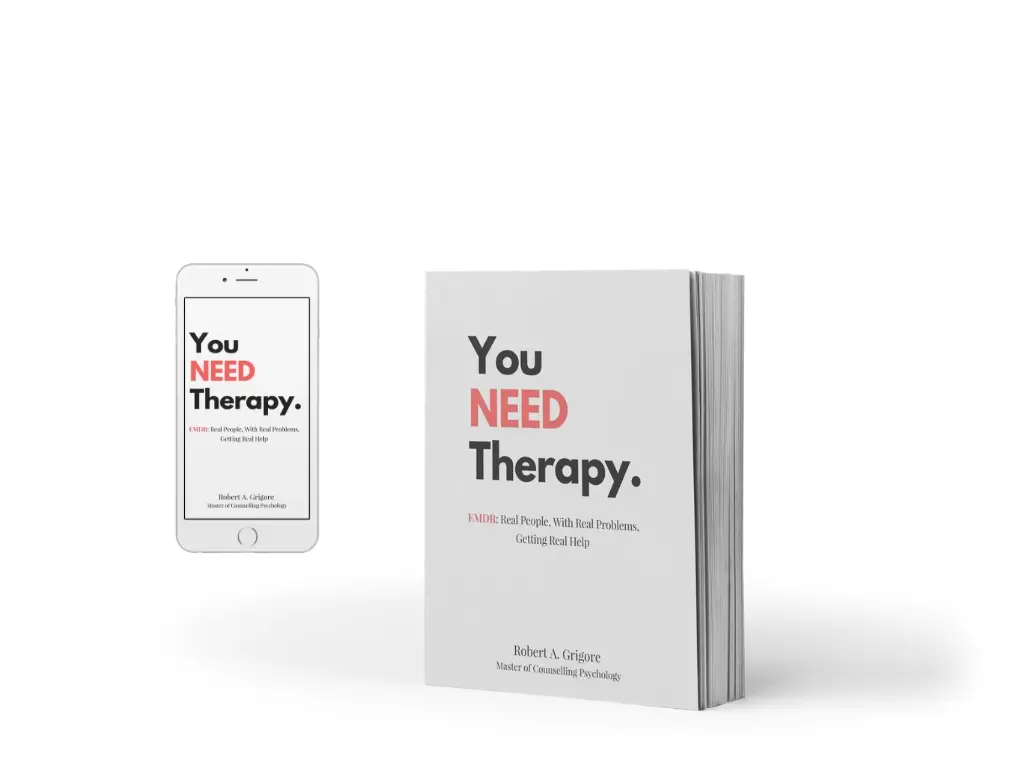Is generational trauma actually a thing? Yes. Generational trauma is real.
And it doesn’t just live in stories. It lives in bodies, behaviours, and beliefs.
You may notice it when your reactions feel “bigger” than the situation. When your anxiety seems inherited. When your parents never talk about their pain, but you carry it anyway.
As therapists at Grigore Counselling, we see this all the time. Clients walk through our doors carrying patterns they can’t trace, grief, fear, shame. And the truth is: not all trauma starts with you. Some of it was passed down.
What Is Generational Trauma?
Generational trauma, also called intergenerational trauma, is psychological pain transmitted from one generation to the next. It can stem from:
- War, genocide, forced displacement
- Colonization and systemic oppression
- Childhood abuse, addiction, or emotional neglect
- Family violence or chronic poverty
This trauma doesn’t always get processed. So it gets inherited.
You don’t need to have experienced the original trauma directly. But its imprint can show up in how your family communicates, copes, or connects.
How Does Trauma Get Passed On?
Trauma is passed down both biologically and socially.
Epigenetics
Studies show that trauma can alter how genes are expressed. You’re not born broken, but your nervous system may be shaped by generations of stress. This doesn’t doom you. It simply means healing has to include the body.
Attachment Patterns
If a parent is overwhelmed by unprocessed trauma, they may struggle to attune to their child. That child may grow up with anxiety, difficulty trusting, or an unstable sense of self.
Family Narratives
Families may avoid talking about what happened. Or pass on messages like “Don’t cry,” or “We don’t talk about feelings.” These rules become internalized, and passed along.
Is generational trauma actually a thing: What It Can Look Like
Generational trauma isn’t always obvious. It often hides in plain sight:
- A fear of success you can’t explain
- Explosive anger that reminds you of your dad
- Feeling responsible for other people’s emotions
- A deep sense of guilt you didn’t earn
- Chronic hypervigilance, even in safe spaces
These patterns aren’t just personal. They’re historical.
Breaking the Cycle
You didn’t start the cycle. But you can interrupt it.
Healing generational trauma often involves:
- Recognizing the patterns — noticing how your reactions reflect the past.
- Naming the origin — tracing family history with curiosity, not blame.
- Regulating your nervous system — through somatic therapy, EMDR, or trauma-informed practices.
- Rewriting beliefs — challenging inherited shame or silence.
- Connecting with others — safe, attuned relationships are corrective experiences.
Therapies like EMDR, IFS, and ACT are particularly effective in this work. They don’t just treat symptoms. You get help to get to the root.
Is It Still My Responsibility?
This question comes up often. If I didn’t cause the trauma, why do I have to deal with it?
Because unprocessed pain gets passed on. Healing isn’t about blame. It’s about choice. About reclaiming your life from patterns that aren’t yours.
You’re allowed to be the one who changes the story.
If you’re ready to begin that work, we’re here to support you. Meet our team or reach out today.
FAQ: Is generational trauma actually a thing?
Can trauma be passed down genetically?
Yes. Through epigenetic changes, stress responses can be inherited. This means your body may respond to stress in ways shaped by your ancestors’ experiences.
Is it possible to heal generational trauma?
Absolutely. With trauma-informed therapy, nervous system work, and support, you can interrupt the cycle and create change for yourself, and future generations.
Do I have to know my full family history to heal?
No. Even without full details, therapy can work with your emotional patterns, beliefs, and body responses to help you heal inherited trauma.











